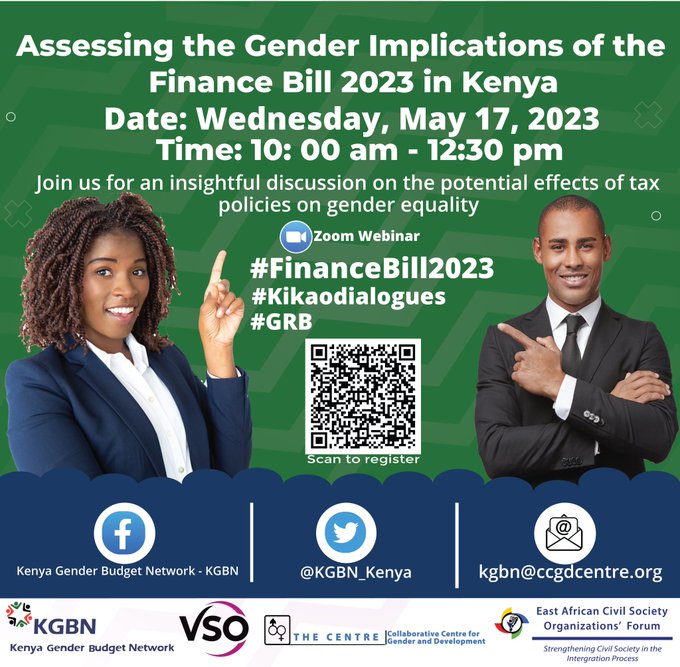Highlights of Gender Implications of the Finance Act, 2023.
The Kenya Gender Budget Network (KGBN) in collaboration with National Tax Payers Association and Collaborative Centre for Gender and Development (CCGD) have been facilitating webinars to discuss the gendered implications of the Finance Act 2023 and several issues have arisen. Raising VAT on petroleum from 8 percent to 16 percent will have the biggest negative returns on the marginal small and micro enterprises (SMEs) – mostly informal businesses where women are the majority. Additional costs of doing business will be incurred in the transportation of goods as well as traders because of increased fares commensurate with an increase in fuel price. Most of the other consumer goods or farming, processing and business inputs whose production and running are affected by the petroleum eco-system will also increase costs that will be passed on to the SME sector leading to reduced profits. Considering that the main market for goods ad services of the SMEs are lower-income workers who will concurrently be affected by rising inflation exacerbated by the new taxes – there shall be a lower demand for goods and services from the SMEs further lowering their incomes and profits.
Changing Turn over tax (TOT) from Kes. 1 million to 50 million now to Kes.500,000 to 25 million will also affect SMEs negatively as more of them will be included in that tax bracket at a time when their income has most likely decreased. The depreciation of Kenya shilling upwards of 35% of its value against the dollar since 2020 (when it exchanged at Kes. 99 to the dollar) to the current 140 (and still falling) means businesses require more shillings to import stock that is sold to a market that is shrinking because of high inflation and reduced disposable income by consumers had hit by additional taxes means that fewer goods will be sold and the market is most likely going to shrink progressively. Additional structural costs of a shorter time for tax remittances will also increase the cost of doing business and thus may lead to employers cutting down the costs related to staffing through retrenchments and employee benefits. Also, increasing excise duty rates on mobile transfer from 12% to 15 % is likely to create a barrier to accessing financial services by in particular women SMEs who rely heavily on mobile money services.
The 5% taxation of digital content will directly have an impact on the youth who have innovatively ventured into digital content creation. The increase of VAT on petroleum products is likely to add more burden on women since cooking is considered a gender role and most women carry the burden of unpaid care and domestic work.
By Josiah Kiarie


